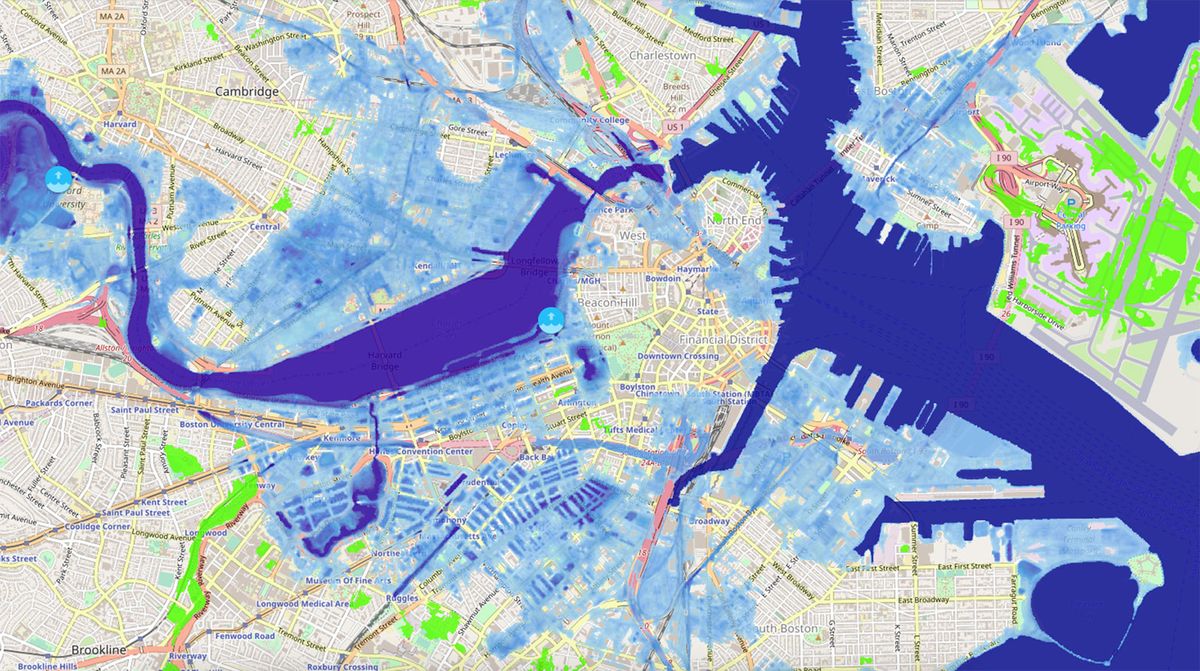An optimistic outlook on climate change

So, I know I promised optimism, but let's get the bad news out of the way. The climate is warming, and it will continue to do so in an exponential fashion. The window in which we could have done something to slow or reverse climate change closed years ago. Now, it's just a matter of damage control and adaptation.
In this post, I will primarily discuss the effects on the North American continent, as this is the place I live in and understand the best.
At this point in time, actual rates of sea level rise are guesswork. Current estimates put us at 2 meters of additional sea level by 2100. That puts large chunks of every coastal city underwater, as well as large swaths of the state of Florida. That means that a lot of people will be displaced, especially in the non-urban coastal regions.
The good thing is that this process is relatively slow, and we have built in financial instruments to push people away from the coast. As this problem progresses, we will see more violent storms and more coastal flooding of low-lying areas. Since almost all property in this country is insured to some extent, I believe that home & property insurance will be the driving force pushing people away from the coasts. Insurance companies will be quick to factor sea level rise into their policies, and I'm sure that at a certain point, they will decline to insure ocean-front property. That leaves coastal areas with two options: raise taxes and install sea barriers, or gradually abandon coastal areas.
I imagine that places like New York and Boston will pursue installing sea barriers and raising street levels. Cities with high-density high-value urban centers won't have a huge problem with raising street levels by a level every century, and infrastructure projects like this can be supported through increases in property taxes. These improvements should keep insurance rates down, and these cities will probably survive for the most part.
More spread-out cities like Los Angeles and Miami won't be able to just build a wall around downtown. In Los Angeles, these low lying areas are primarily industrial (at least for the first century), which should allow for large scale restructuring. Some low areas can be dredged and used as fill to raise up others.
Once sea level rise starts following a predictable growth curve, it will just be another financial factor in the choice of where to build and when. The fact that this is a slow and gradual process means that there is time for slow moving financial instruments to kick in and drive the migration away from the coast. Maybe the federal government creates an incentive to build new housing on flood-safe land. Maybe inland cities get more attention as cheap places to do business.
To put on my ancient-history-geek hat for a minute, this isn't the first time this has happened. The most ancient cities we know about, like Mohenjo Daro and Eridu were not "City v1.0." It's apparent from their design that concepts like plumbing and public baths already existed. It's most likely that their urban predecessors are now buried under a couple meters of silt on the continental shelf. Human civilization took off as the last ice age drew to a close, and all that meltwater must have caused a continual sea level rise. As we know, the best place to build a city is at the mouth of a river. All these ancient river mouths would be the first places to be submerged. Maybe Eridu and Mohenjo Daro were founded by groups of people who said "fuck it, we're moving WAY upstream" and thus their ruins survive to the modern day. This would explain why the flood myth is so common in ancient mythology.
This is not the apocalypse. It will suck really bad for a lot of people for a long time, but "civilization" will not collapse, as long as the process is gradual and predictable.
Header image from NOAA Sea Level Rise Viewer.
